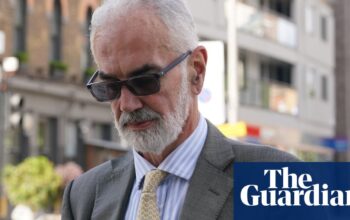
The industry watchdog has stated that ex-football players Matt Le Tissier and John Hartson violated UK advertising regulations by sharing promotional tweets for a cannabidiol (CBD) product without disclosing that they were receiving payment from its retailer.
The ASA received complaints regarding multiple posts on X, previously known as Twitter, that were promoting Supreme CBD. The company was created by ex-boxer Anthony Fowler.
Hartson, a previous “brand ambassador” for Supreme CBD, shared in two tweets with his 400,000 followers that the product is “magical” and claimed that it significantly improves sleep and reduces anxiety.
A message shared on Twitter by Le Tissier, who is currently a brand representative, informed his 650,000 followers that he was initially doubtful about the company, but now believes that it can greatly benefit those struggling with anxiety, depression, pain, or insomnia.
The use of CBD products has significantly grown in popularity in the UK over the past few years, with a variety of options available such as gummies and carbonated beverages.
Hartson and Le Tissier’s posts provided discount codes for consumers interested in buying CBD products. However, they did not disclose their affiliation with Supreme CBD or indicate that the tweets were sponsored content.
The ASA examined the content for not adequately disclosing its commercial purpose and for falsely asserting that the product could “prevent, treat, or cure disease,” a violation of the UK marketing regulations.
Supreme CBD stated that they did not have a business partnership with Hartson, even though they acknowledged a verbal agreement in which he would receive a “small commission” and complimentary products for the use of his discount codes.
Hartson informed the ASA that he initially used the product for personal purposes, which eventually led to him becoming a brand representative. He also stated that Supreme CBD utilized his social media account to share tweets and reach out to his significant number of followers. However, Supreme CBD denied any responsibility for Hartson’s tweets.
Hartson stated that he was given “small compensation payments” in accordance with an oral agreement.
After the ASA investigation, Hartson changed the tweets, removed the ability for others to post on his behalf, and stated that he was no longer associated with Supreme CBD.
The company stated that Le Tissier had an affiliation and earned commission through his unique code, as part of a verbal agreement.
Le Tissier stated that he did not realize discussing the advantages of the products would be unacceptable. He also mentioned that he will make sure to clearly label any future posts as marketing and refrain from mentioning any medical benefits.
The post that the ASA banned is still stuck at the top of his X feed.
According to the advertising code of the ASA, marketing messages should be clearly distinguishable, for example by using the hashtag #ad.
The ASA acknowledged that a financial arrangement existed between Supreme CBD and Mr. Hartson and Mr. Le Tissier, where they received commission for sales made using their personalized codes by consumers. As a result, the personalized codes were directly linked to the sale of goods by Supreme CBD, making the posts considered advertisements.
The ASA mentioned that the duo appeared in a designated “ambassadors section” on the Supreme CBD website, with links to purchase their preferred product. This led the watchdog to believe that there was an expectation for them to speak positively about the brand.
A post from Fowler, the founder of Supreme CBD, was found to be in violation of advertising regulations.
The ASA instructed Supreme CBD, Anthony Fowler, John Hartson, and Matt Le Tissier to clearly identify their future advertisements as marketing communications. They were also told to refrain from making any claims that their products could prevent, treat, or cure human diseases.
Source: theguardian.com



